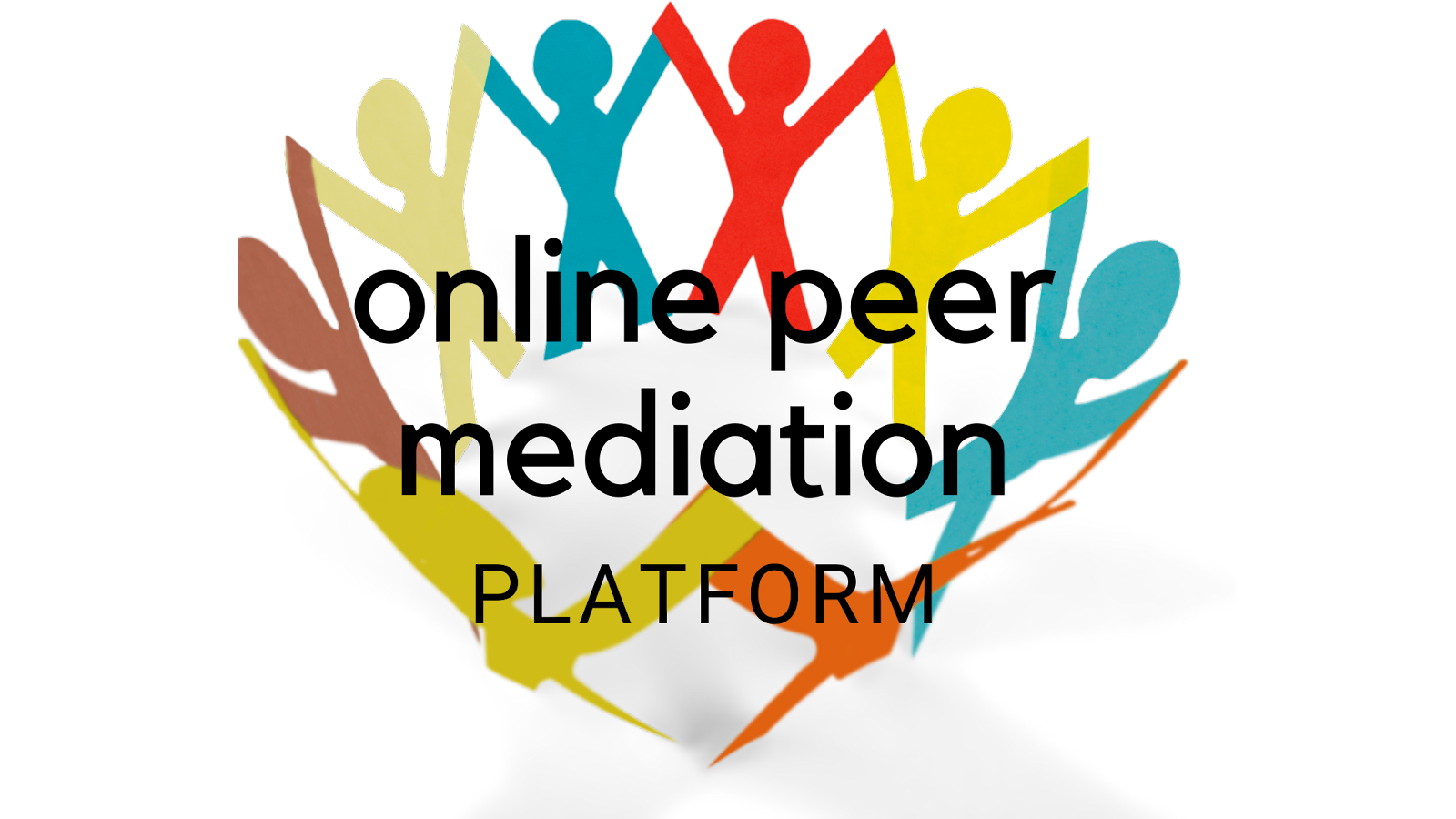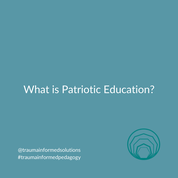This blog post was written by Darby Munroe regarding her thoughts about the rise of patriot education over peace education in the US since 2016. Darby explains why she disagrees with this trend and how educators can discuss difficult topics with students in the class using peace education techniques.
Darby will host a webinar to explain these techniques on March 24th @ 7 PM.
Since 2016, the rise in Nationalism under the former presidential leadership has revealed undercurrents of racism and structural
violence throughout our nation. The former President rallied for
Patriotic Education, to further a Nationalistic
platform. His “Teach American Exceptionalism” item is under his “Fighting
for You” agenda. In it, he claimed that the United States does not
have a racism problem, but instead that young people are brainwashed into
thinking bad things and must focus on how exceptional we, as a nation, really
are. What’s missing is actual data and grounding in theories to
back up his claims that we do not have race related issues in the US, and how
an American Exceptionalism curriculum would benefit schools and
communities. There is, however, a large body of research on peace
education in schools, and the benefits to surrounding communities.
Background info and how to talk about difficult topics in
education
ABOUT ME: I AM AN EDUCATOR, A PRACTITIONER AND A
RESEARCHER.
As an educator, I have been in a variety of classrooms for
the past few decades, including alternative education and online
settings. As a practitioner, I focus on restorative practices in
education, like circles. I am a certified family mediator and also
work with the Online Peer Mediation Platform. As a researcher, I
conducted research on facilitated dialogues with Dr. Cheryl Duckworth in
Broward County High Schools. This research was published in Conflict
Resolution Quarterly. It is entitled, “Students can change a
school”: Understanding the role of youth leadership in building a school
culture of peace.
CURRENT EXAMPLE OF CONTROVERSIAL TOPIC IN EDUCATION:
Peace Ed vs Patriotic Ed
Politics
Religion
BLM
LBGTQ
Testing
#metoo
WHAT IS PEACE EDUCATION?
Peace education is rooted in the works of bell hooks, Paulo
Friere and Maria Montessori, to name just a few thought leaders in the
field. Instead of a banking or factory model of education, where
authoritarian teachers rule the classroom with strict classroom management and
lesson plans, similar to many traditional schools, peace education views
students as co-creators of knowledge, teaching and learning form one
another. The teacher does not have power over the classroom, but
instead everyone has power with each other. Social emotional
learning, restorative justice, and nonviolence communication are the norms, and
take priority over curriculum and testing.
WHAT IS PATRIOTIC EDUCATION?
The last person to hold office proposed Patriotic Education,
promoting how great Americans are, some may say to the point of being
elitist. The ideas included downplayed systemic racism and claimed
anything democratic was indoctrination. The undertones of the
proposed patriotic education promoted an us vs them attitude, which meant to
deepen the divide both in our nation and the world.
Theories that can be used to determine what effects peace
education and patriotic education will have on children and communities
CRITICAL PEACE EDUCATION
Critical Peace Education Theory falls in line with social
justice and education reform. Educators are more concerned with
shaping critical thinkers than having students who can regurgitate material.
Through power with and restorative models, injustices and inequalities are
addressed. Students learn how to mediate and prevent conflict and
practice nonviolence communication. Students and teachers are agents
of change.
STRUCTURAL VIOLENCE
Johan Galtung coined structural violence as any form of
violence an institution, like an educational system, harms people by preventing
them from getting their basic needs met. Think outside of the box,
violence does not necessarily mean physical violence. It could
someone not reaching their full potential.
Is learning conflict resolution skills a basic need?
Should peace education be a basic need?
If students learned these things in school, how would it
impact the larger community?
How to facilitate difficult conversations
Obviously, not everyone is going to agree about difficult
topics in education, especially when it comes to politics or
religion. A look at the news and social media over the past few
years show s just how divisive people can be and just how much misinformation
is out there. More proof of why critical thinking, a tenant of peace
education, show be taught in public schools. Here are some examples
of conflict resolution processes that can be used in educational settings to
help people discuss things productively.
FACILITATED DIALOGUES
Facilitators can show participants there is more than one
way to view conflict.
Prep work (structure, facilities/online, contacts)
One event or a Series of Events
Ground Rules and Expectations
Facilitated Dialogues are confidential safe
spaces. People don’t have to agree with one another, but they can
learn to seek to understand each other and find common ground.
Topics to be discussed
Large group and break out groups
Facilitators
Potential Agreements, further actions
CIRCLES
Not all schools adopt restorative justice or peace education
practices. Educators can implement preventative circles in their
classrooms on a regular basis to help teach and model nonviolent communication
and conflict resolution. Think of a facilitated
dialogue, but on a much smaller scale, and youth led.
ONLINE PEER MEDIATION
How can the Online Peer Mediation Platform help with
facilitating difficult conversations in education? If you want additional training, consultation, or assistance, the Online Peer Mediation Team can assist you.
Online Peer Mediation Platform









Comments
Post a Comment